The war has changed the lives of all Ukrainians. Many civilian occupations have become very dangerous. In addition to the military, who risk their lives every second, power engineers, farmers, doctors are often exposed to death… The latter bring Ukrainian victory closer at the front and in the rear by saving the wounded. They stay with their patients to the last and continue performing their duties, no matter what. This story is about such a Ukrainian doctor.
In February 2022, the Russian army moved rapidly through the South of Ukraine. The town of Snihurivka in the Mykolayiv region very quickly found itself on the front line between Mykolayiv and Kherson. The shock of the first days of the war was caused by the brutality of the Russians, who killed and maimed many people. Doctors at the Snihurivka district hospital had to provide care not only to local civilians, but also to military personnel who were brought in from the Kherson region. The medical facility was filled to capacity with patients who needed urgent care, and no more than half of the 200 medical staff remained. One of them was neurologist Valentyn Shmyhelskyi, who had been acting as the chief physician since the full-scale invasion began. During the occupation, he didn’t cooperate with the Russians and survived torture.
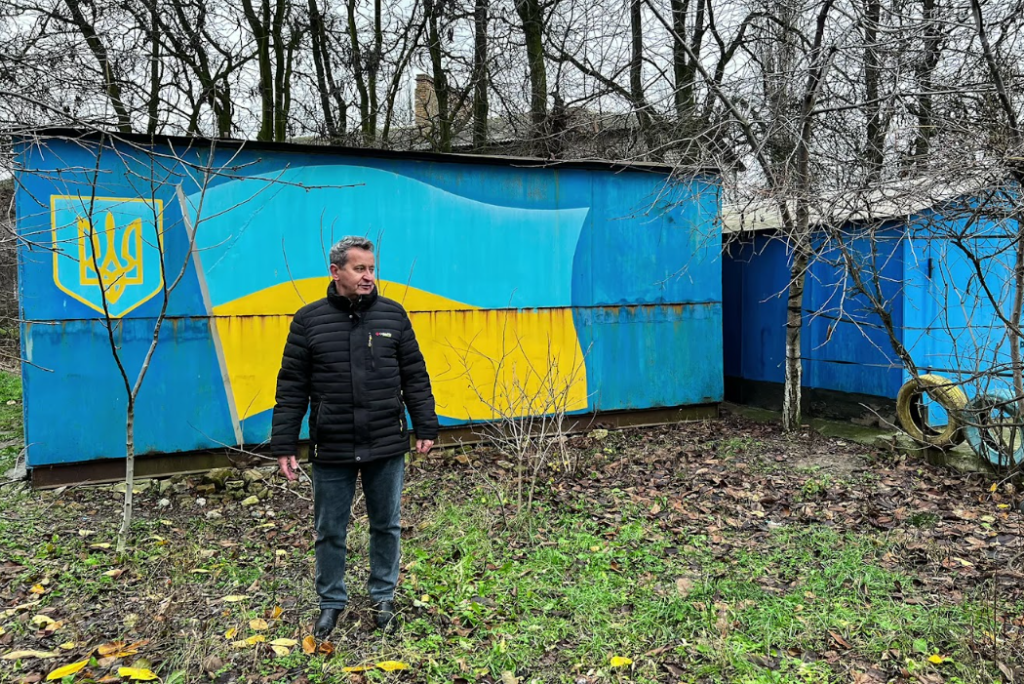
The first days of the war
Valentyn Shmyhelskyi has been working at the Snihurivka hospital for over 30 years. He came there as a young doctor and his entire professional and personal life has been connected with this community. So during the occupation, despite the threat to his own life, the doctor stayed in the town to fulfill his duty. He says he couldn’t betray his team and patients, leaving them to their fate.
“The hospital wasn’t ready for such events. There was nothing, there were no scalpels. I had to look for open private pharmacies at night, and people gave us everything,” Shmyhelsky recalls. “The only thing we had was the filled blood bank.”
On the morning of February 24, 2022, despite the catastrophe and the panic unfolding around, Valentyn and his wife, a doctor, went to work as usual. In the evening of the same day, the mayor ordered the man to perform the duties of the chief physician, who had left the town.

For the next two months, Shmyhelskyi lived in the hospital. “I had to see all the sick and wounded who began to arrive from the Antonivsky and Kakhovsky bridges. All in order to provide qualified assistance, because the staff was limited,” he explains.
Later, the electricity and the Internet disappeared in Snihurivka. The hospital still had them for a while, but eventually it also lost power supply and communication. The most serious patients had to be transported to Mykolayiv through mined fields. Valentyn personally accompanied the wounded in an ambulance. He recalls that they were mostly young, sometimes very young boys.
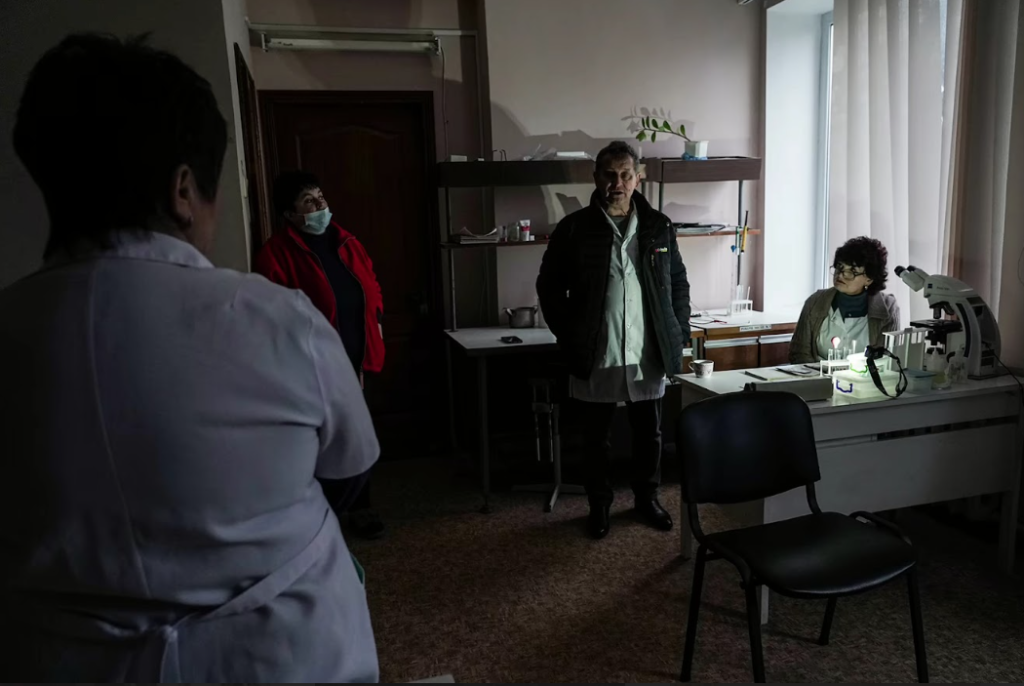
Occupation of Snihurivka
On March 19, 2022, after almost a month of failed attempts, the Russians finally occupied Snihurivka. Now the doctors’ task became far more complicated – they had not only to treat, but also secretly evacuate Ukrainian soldiers from the medical facility. If the occupiers had disclosed their plan, it could have resulted in the deaths of both doctors and soldiers.
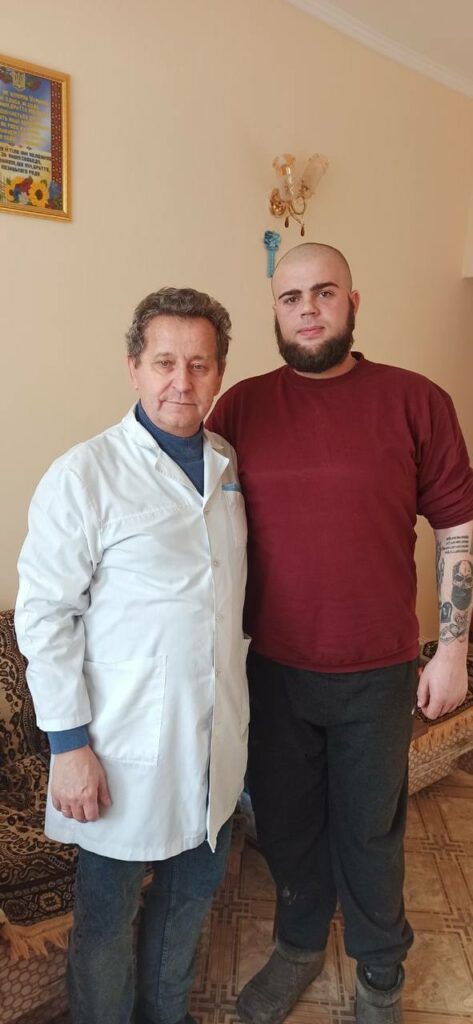
Valentyn Shmyhelskyi recalls his first meeting with the Russian military, who broke into the hospital yard:
“I came out dressed in a coat, with my hands in my pockets. I saw a Russian soldier stretching out his hand to greet me, but I didn’t take my hands out of my pockets. They asked me about weapons and about the military. They also told me which buildings were working and which were no longer working. They closed them.”
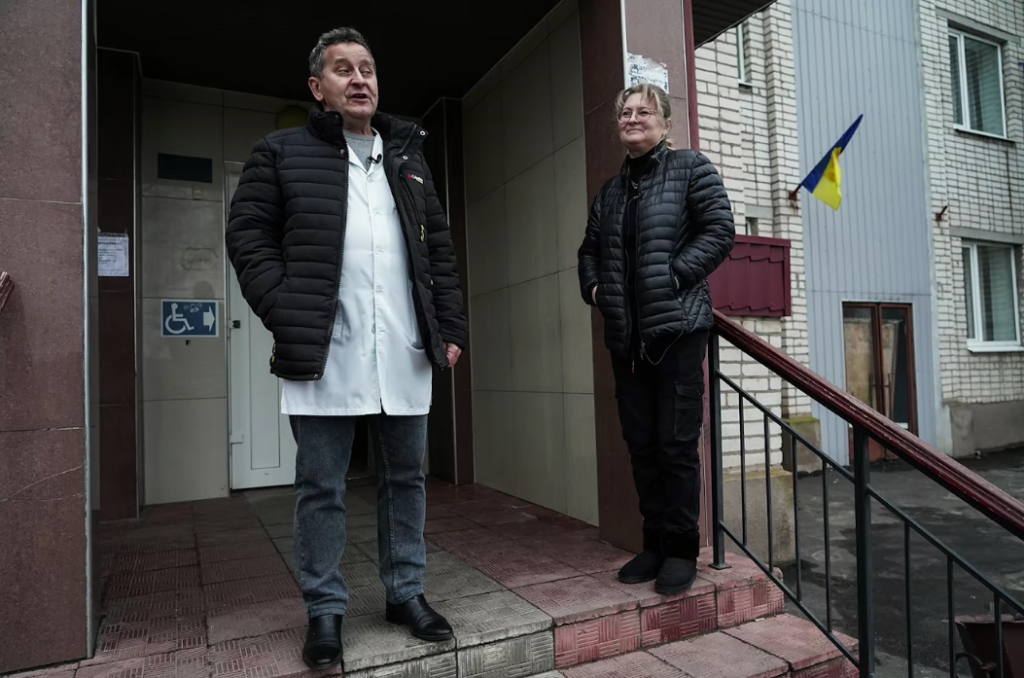
In order to take out the wounded Ukrainian soldiers, the medics resorted to tricks – they changed their surnames and dressed them in civilian clothes, so that nothing would give away the military. The Russians insisted that patients be taken to occupied Kherson, not to Mykolayiv, but Mr. Shmyhelskyi stood his ground and got the occupiers’ permission to leave for the Ukrainian government-controlled area.
“Among other things, such trips allowed us to pay salaries to the medical staff that remained in Snihurivka and worked all the time despite the danger. To do this, I turned off and disassembled my phone, through which payments were made, hid it in the car and took it through checkpoints.”
At a time when locals avoided leaving their homes altogether, Valentyn Shmyhelskyi knew about everything that was happening in the town thanks to his job. He used to drive around the town in an ambulance almost every day, so in Mykolayiv he was happy to take the opportunity to pass on information about the location of the Russians in Snihurivka.

Torture
Sooner or later, the invaders come to everyone. They came to Shmyhelsky on April 24, 2022 – on Easter. The Christian holiday didn’t prevent searches at work and at home. The Russians persuaded Mr. Shmyhelskyi to cooperate, talked about the referendum and benefits of betrayal. When that didn’t work, they used their usual terrorist methods. The head physician recalls being taken to a room with bars for detainees on the hospital’s territory:
“They handcuffed me, and they also interrogated the driver. They took me to the premises for prisoners. They beat me and threatened to torture with electricity and boiling water. And they continued beating me. They kept me handcuffed for about three or four hours.”
Then there was another search. The Russians took his money and valuables and ordered him to leave the town within 24 hours. Valentyn Shmyhelskyi was lucky to stay alive. Most often, people who refused to cooperate or aroused the slightest suspicion among the Russians disappear without a trace.
Life after occupation
The doctor managed to leave for Mykolayiv on April 30, 2022. But despite the distance and his advanced age, he continued his mission. Worried about his colleagues, Shmyhelskyi did everything in his power to make the situation in Snihurivka known, and continued to ensure that the employees’ salaries were paid. This made the Russians very nervous, but they were unable not stop it. Throughout the occupation, medical workers received Ukrainian salaries in Ukrainian hryvnias.
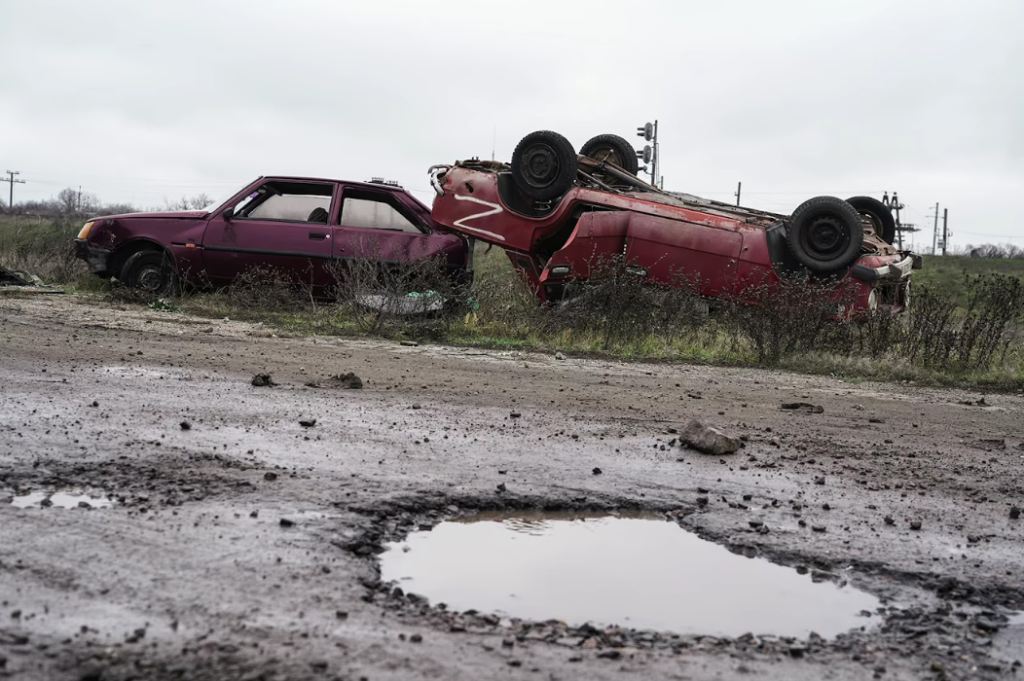
Snihurivka survived the occupation. On November 10, 2022, the AFU liberated the town, and Valentyn Shmyhelskyi returned home, where he continues to work as a neurologist.
“I don’t know why I wasn’t scared then. The realization comes only now, but I couldn’t act otherwise. I’m proud that the Russians couldn’t take a single soldier from the hospital. I was the only person who was taken out of the hospital in handcuffs at that time.”
Author: Pavlo Yeshtokhin, journalist at Volnovakha. City, Zhovti Vody. City.
Supported by the U.S. Embassy in Ukraine. The views of the authors do not necessarily reflect the official position of the U.S. Government.



